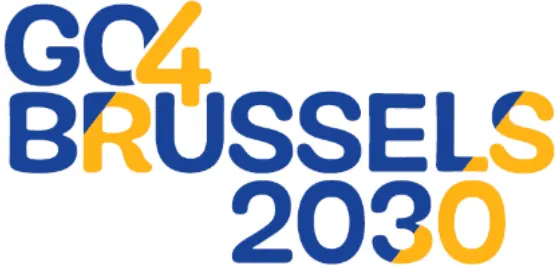Promoting Exports and Attracting Investments
The Brussels government aims to stimulate economic growth, foster innovation, and enhance the region's competitiveness. To achieve this, we are committed to strengthening the internationalisation of Brussels businesses and entrepreneurs, establishing international technological partnerships, and attracting investments and entrepreneurs to Brussels. We have identified five policy initiatives that will take priority in the coming years (Objective 1.5_Region).
The internationalisation of the Brussels economy is essential for its expansion. However, due to the containment measures imposed by the Brussels region's main foreign trading partners, foreign orders for Brussels goods and services have significantly decreased.
Especially after the COVID-19 crisis, it is crucial to provide international guidance to:
- quickly inform businesses about economic developments in certain markets, including stability, risks, and new opportunities in specific sectors.
- facilitate non-exporting businesses' exploration of neighbouring markets to find opportunities that may have been lost in Belgium.
- assist companies looking to restart their exports while adhering to health measures and helping them adapt their activities to various socio-economic contexts.
Attracting foreign investors
Particular attention will be paid to ensuring that internationalisation aligns with the climate objectives of the Brussels-Capital Region.
The crisis also affects foreign companies, which form the basis of many jobs in our region. In the current uncertain context, attracting potential foreign investors to our region and providing them with more detailed and personalised information before they decide to establish a presence here is crucial. Given the heightened international competition, greater efforts in individual guidance are needed.
Guidance for international business development
For the long-term optimal international development of the Brussels region, proactive and individual guidance is necessary. This involves coordinating various Brussels support agencies, focusing on markets and sectors with significant potential for the region and its residents. These policy initiatives should foster collaboration between institutions working on international promotion in communication strategies and international support initiatives. International support should also be geared towards more proactive and personalised services for businesses and entrepreneurs.
The COVID-19 crisis has highlighted the need for guidance that can adapt to Brussels and international trends in sectors and priority geographical markets. This translates into sector-specific and geographically targeted support to promote Brussels exports and attract foreign investors and an international trade network aligned with geographical priorities.
Additionally, the international strategy should consider climate urgency and social challenges. Therefore, the Brussels region will incorporate these priorities into its international initiatives.
Who is leading the effort?
Consulted Priority
- Lead Minister: Secretary of State for European and International Relations and Foreign Trade
- Associated Ministers: Minister-President; Minister of Finance, Budget, Civil Service, Promotion of Multilingualism, and Brussels Image; Secretary of State for Economic Transition
- Partners: hub.brussels, Brussels International, finance&invest.brussels, visit.brussels, GOB, chambers of commerce, and business federations Steering Committee: hub.brussels, visit.brussels, Brussels International, finance&invest.brussels
Consult the Go4Brussels 2030-strategy
1. International support, attracting investments, and promotion of Brussels
Enhanced coordination among institutions responsible for international support, attracting investments, and cultural and tourist promotion of Brussels is essential. Given the diverse actors involved in Brussels internationalisation (to manage political and institutional relations with bilateral and multilateral partners, provide international guidance to businesses, attract foreign investors and funds, and consolidate the region's cultural and tourist ties), it is necessary to strengthen their collaboration, facilitate regular communication, and ensure transparency regarding activities and allocated resources.
Leading authorities
- Secretary of State for European and International Relations and Foreign Trade
- Minister-President
- Minister of Finance, Budget, Civil Service, Promotion of Multilingualism, and Brussels Image
2. International trade actions focused on key sectors and markets with significant potential
International trade actions targeted at Brussels' key sectors and geographical markets with substantial potential. The Brussels economy supports various sectors with significant regional potential (see Objective 1.4).
Supporting these sectors with specific actions tailored to the international context is essential. These priority sectors will be analysed annually and categorised based on priority.
In the same context, priority export areas must be identified based on their economic potential and the cultural and tourist ties that can be strengthened.
Initiatives for export support and attracting foreign investors should consider these annual priorities. The international trade network will also be periodically reviewed based on these priorities.
Leading authorities:
- Secretary of State for European and International Relations and Foreign Trade
- Secretary of State for Economic Transition
3. More personalized export support
Provide stronger individual guidance to Brussels SMEs as they take steps to export, particularly focusing on those with limited or no experience in international markets, and offer more proactive and comprehensive support for the trade network, both internationally and within Brussels.
Leading authority: Secretary of State for European and International Relations and Foreign Trade
4. Better integration of social and environmental aspects into international trade actions
Integrate social and environmental aspects more effectively into international trade actions. Economic transition obliges us to consider international guidance more thoroughly.
Hence, it is important to intensify efforts to promote the inclusion of women in foreign initiatives, such as foreign trade promotion, and to direct support instruments towards excelling models concerning environmental sustainability and human rights. Companies that exemplify these principles will gain visibility and receive more personalised international support.
Leading authorities:
- Secretary of State for European and International Relations and Foreign Trade
- Secretary of State for Equal Opportunities
- Minister of Climate Transition, Environment, Energy, and Participative Democracy
5. Attracting investors and entrepreneurs
Develop a strategy that considers all factors contributing to the attraction of investors to Brussels. This includes accommodating all types of investors and entrepreneurs, leveraging international developments and economic crises, and ensuring the accessibility of Brussels. The focus is on attracting all kinds of investors and entrepreneurs in sectors with significant job and innovation potential, based on priority geographical areas in the Brussels-Capital Region.
Leading authorities:
- Secretary of State for European and International Relations and Foreign Trade
- Minister-President
- Minister of Finance, Budget, Civil Service, Promotion of Multilingualism, and Brussels Image
